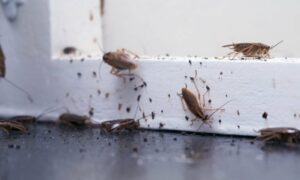Pest infestations pose a significant economic burden on both homeowners and businesses alike. Beyond the immediate costs of damage and remediation, the long-term implications can be profound. Understanding the true financial impact of pest infestations is crucial for informed decision-making and proactive pest control Pembroke Pines measures.
Analyzing the Financial Impact of Pest Infestations: Understanding Direct and Indirect Costs
Pest infestations take a dual financial toll on individuals and businesses. It’s imperative to dissect these costs comprehensively to grasp their full extent:
1. Direct Costs
Immediate expenses resulting from pest damage are multifaceted. They include not only repairs to physical property but also the replacement of contaminated goods, such as food items or materials compromised by pest activity. These costs extend beyond simple monetary values, encompassing the time and effort required to rectify the damage inflicted by pests.
2. Indirect Costs
Often underestimated, indirect costs associated with pest infestations can be considerable. Healthcare expenses stemming from pest-related illnesses, such as allergies or infections, contribute to the overall financial burden. Additionally, loss of productivity due to pest disruptions in both residential and commercial settings can lead to missed opportunities and diminished efficiency. Furthermore, the intangible impact on reputation and customer trust can have lasting repercussions on businesses, resulting in decreased revenue streams and market share.
By breaking down these costs, it becomes evident that pest infestations are not merely a nuisance but a substantial drain on financial resources.
Long-Term Effects of Pest Infestations on Property Value, Reputation, and Legal Compliance
1. Property Devaluation
Persistent pest issues can gradually undermine buildings’ structural integrity, leading to costly repairs and renovations. Additionally, the stigma associated with pest-infested properties often leads to decreased demand and lower selling prices in the real estate market. Potential buyers and tenants are deterred by the prospect of dealing with ongoing pest problems, further exacerbating the depreciation of property values over time.
2. Reputational Damage
Negative publicity surrounding pest infestations can severely impact businesses’ reputations. Beyond mere inconvenience, pest problems can signify negligence in hygiene and maintenance standards, casting doubt on the enterprise’s reliability and professionalism. This erosion of consumer trust not only results in the loss of existing clientele but also makes it challenging to attract new customers, ultimately affecting revenue streams and long-term sustainability.
3. Structural Damage
Untreated pest infestations can cause significant structural damage to buildings and infrastructure over time. From weakening wooden structures to compromising electrical wiring and plumbing systems, pests like termites, rodents, and insects can wreak havoc on a property’s integrity. Repairing such damage often entails extensive renovations and costly reconstruction efforts, further exacerbating the financial strain on property owners.
4. Legal and Regulatory Consequences
Ignoring pest problems can also result in legal and regulatory issues for property owners and businesses. Failure to address pest infestations may violate health and safety regulations, leading to potential fines, penalties, or even legal action. Moreover, non-compliance with pest control standards can tarnish the reputation of businesses and individuals, affecting their credibility and standing within the community.
Investing in Proactive Pest Control Measures
Taking a proactive stance against pest infestations is not only prudent but economically advantageous. Here’s why:
1. Cost Savings
Preventive pest control measures not only save money on immediate damage repair but also prevent long-term expenditures. Hawx Pest Control’s proactive approach identifies and addresses potential infestations early, minimizing the need for costly remediation efforts. By investing upfront in preventive measures, businesses and homeowners avoid the financial burden of extensive repairs and property devaluation caused by unchecked pest activity.
2. Preservation of Value
Beyond monetary savings, proactive pest control safeguards the integrity and reputation of properties and businesses. Maintaining a pest-free environment demonstrates a commitment to quality and professionalism, enhancing customer trust and loyalty. Proactive pest management ensures sustained profitability and long-term success in competitive markets by protecting brand reputation and property value. Investing in preventive measures is an investment in maintaining and enhancing overall value.
3. Mitigation of Health Risks
Proactive pest control goes beyond property protection; it prioritizes the health and safety of occupants and customers. Eliminating pests and their associated health hazards, such as allergens and pathogens, reduces the risk of illnesses and injuries. This not only improves the well-being of individuals but also minimizes healthcare costs and liability concerns for property owners and businesses.
4. Enhanced Operational Efficiency
Implementing proactive pest control strategies streamlines business operations by eliminating disruptions caused by pest-related issues. With fewer interruptions and distractions, employees can focus on their duties more effectively, leading to increased production and happier customers. This improved efficiency translates into tangible cost savings and a competitive advantage, as businesses can deliver superior products and services without the hindrance of pest problems.
5. Compliance with Industry Standards and Regulations
Proactive pest management ensures businesses meet and exceed industry standards and regulations, particularly in sectors like food service, hospitality, and healthcare. By investing in comprehensive pest control measures, businesses demonstrate their commitment to maintaining high hygiene and safety standards. This not only mitigates the risk of penalties, fines, and reputational damage associated with non-compliance but also fosters trust among stakeholders and customers, enhancing brand reputation and credibility.
Conclusion
The economic impact of pest infestations cannot be overstated. From immediate financial burdens to long-term repercussions on property value and reputation, the costs are multifaceted and significant. However, by investing in proactive pest control measures provided by the top pest exterminator Pembroke Pines, Hawx Pest Control, individuals and businesses can mitigate these risks and realize substantial cost savings over time. If you want to safeguard your financial assets and reputation against insect infestations, you need to know how much they really cost.



































